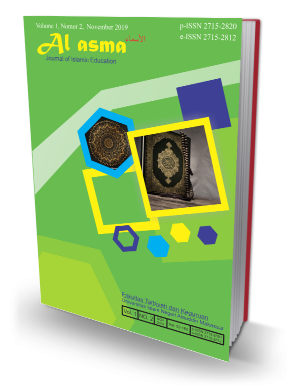EFEKTIVITAS PENERAPAN MODEL PEMBELAJARAN KOOPERATIF TIPE THINK PAIR SHARE DENGAN PENDEKATAN PROBLEM POSING TERHADAP KEMAMPUAN BERPIKIR KRITIS MATEMATIS
Abstrak
Abstrak
Penelitian ini bertujuan untuk mengetahui efektivitas model pembelajaran kooperatif tipe think-pair-share dengan pendekatan problem posing terhadap kemampuan berpikir kritis matematis. Penelitian ini menggunakan pendekatan kuantitatif dengan jenis penelitian quasi-eksperimental. Populasi dalam penelitian ini adalah seluruh peserta didik kelas VIII SMPN 3 Binamu kabupaten Jeneponto yang berjumlah 64 peserta didik. Instrumen penelitian menggunakan tes berdasarkan pada indikator berpikir kritis matematis. Teknik analisis data menggunakan analisis statistik deskriptif dan analisis statistik inferensial. Hasil penelitian menunjukkan bahwa 1) nilai pretest dengan menerapkan model pembelajaran kooperatif tipe think-pair-share dengan pendekatan problem posing memiliki persentase terbanyak pada kategorisasi sangat rendah dan persentase terbesar nilai posttest pada kategorisasi tinggi; 2) penerapan model pembelajaran kooperatif tipe think-pair-share dengan pendekatan problem posing dalam meningkatkan kemampuan berpikir kritis matematis peserta didik dikategorikan efektif.
Abstract
This study aims to determine the effectiveness of think-pair-share cooperative learning model with the problem-posing approach to critical thinking skill of mathematics. This study uses a quantitative approach to the type of quasi-experimental research. The population in this study were all eighth-grade students of SMPN 3 Binamu, Jeneponto regency with a total of 64 students. The research instrument uses tests based on mathematical critical thinking indicators. Data analysis techniques used descriptive statistical analysis and inferential statistical analysis. The results showed that 1) the pretest score by applying the cooperative learning model type think-pair-share with the problem-posing approach has the highest percentage in the very low categorization and the largest percentage of the posttest score in the high categorization. 2) The application of the cooperative learning model type think-pair-share with the problem-posing approach in improving students' mathematical critical thinking skills is considered effective.
##plugins.generic.usageStats.downloads##
Referensi
Basri, M. (2009). Pengaruh Model Pembelajaran Kooperatif Tipe TPS X SMK Negeri dan Bakat Teknik Terhadap Hasil Belajar Menguasai Konsep Dasar Listrik dan Elektronika Pada Peserta didik Kelas 2 Medan Tahun Ajaran 2008/2009. Jurnal Teknik.
Fuad, I. (2003). Dasar-Dasar kependidikan. Rineka Cipta.
Hamdayana, J. (2014). Model dan Metode Pembelajaran Kreatif dan Berkarakter. Ghalia Indonesia.
Herawati, Dwi Putra, Siroj, Basir, H. M. J. (2010). Pengaruh Pembelajaran problem Posing terhadap Kemampuan Pemahaman Konsep Matematika Peserta didik kelas XI IPA SMA Negeri 6 Palembang. Jurnal Pendidikan Matematika, 4, 71.
Husna, M.Ikshan, F. (2013). Peningkatan Kemampuan Pemecahan Masalah dan Model Komunikasi Matematis peserta didik sekolah menengah Pertama Melalui Model Pembelajaran Kooperatif Tipe TPS. Jurnal Peluang, 2(1), 83.
Istianah, E. (2013). Meningkatkan Kemampuan Berpikir Kritis dan Kreatif Matematik dengan Pendekatan Model MEAs pada Peserta didik SMA. Jurnal Ilmiah Program Studi Matematika, 2(1), 44.
J.M, El & Shadily, M. (1990). Kamus Inggris-Indonesia. PT. Gramedia Pustaka Utama.
Jumata, H. (2014). Model dan Metode Pembelajaran Kreatif dan Berkarakter. Ghalia Indonesia.
Kadir. (2015). Statistik Terapan. PT. Rajagrafindo Persada.
Muh. Khalifah Mustamin. (2015). Metodologi Penelitian Pendidikan. Aynat Publishing.
Oemar, H. (2001). Perencanaan Pengajaran Berdasarkan Pendekatan Sistem. PT. Bumi Aksara.
Sudaryono. (2016). Metode Penelitian Pendidikan. Prenada Media Grup.
Sudjana, N. (2005). Dasar-Dasar Proses Belajar Mengajar. Sinar Baru Algasindo.
Sugiyono. (2016). Metode Penelitian & Pengembangan (R&D). Alfabeta.
Sukarma, K. (2004). Pembelajaran dengan Pendekatan Problem Solving dan dan Problem Posing Untuk Meningkatkan Aktivitas Peserta didik. Jurnal Kependidikan, Vol.3 No.1.
- Authors retain copyright and grant the journal right of first publication with the work simultaneously licensed under a Creative Commons Attribution License that allows others to share the work with an acknowledgement of the work's authorship and initial publication in this journal.
- Authors are able to enter into separate, additional contractual arrangements for the non-exclusive distribution of the journal's published version of the work (e.g., post it to an institutional repository or publish it in a book), with an acknowledgement of its initial publication in this journal.
- Authors are permitted and encouraged to post their work online (e.g., in institutional repositories or on their website) prior to and during the submission process, as it can lead to productive exchanges, as well as earlier and greater citation of published work (See The Effect of Open Access).

